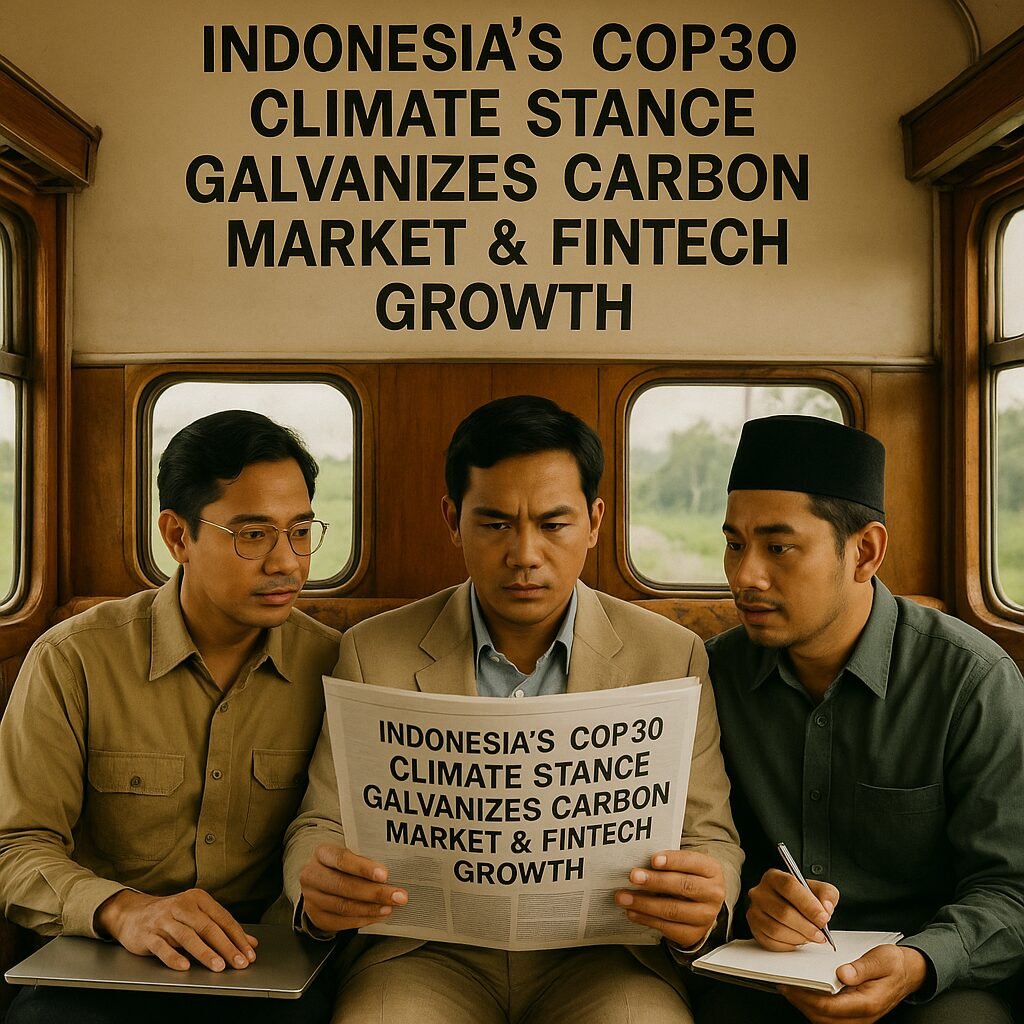- Indonesian government focuses on climate change at COP30, promoting carbon market development.
- Carbon market incentivizes emission reduction, aligns economic activity with environmental conservation in Indonesia.
- Fintech start-up Pintarnya raises $16.7 million, reflecting investor confidence in Indonesia's tech sector.

The Indonesian government is preparing to present a strong stance on climate change at the forthcoming COP30, aiming to stimulate the development of the carbon market in the country. As reported by ANTARA News, the Environment Minister, Hanif Faisol Nurofiq, plans to rally all provincial governors to formulate a comprehensive national carbon market pitch. This initiative is a clear reflection of the growing recognition of the economic and environmental potential of carbon trading.
The carbon market has the potential to provide financial incentives for reducing greenhouse gas emissions. By putting a price on carbon emissions, it encourages businesses to reduce their carbon footprint, thus aligning economic activity with environmental conservation. This is particularly relevant for Indonesia, a country rich in forests that act as carbon sinks.
Meanwhile, the Indonesian economy is also seeing significant activity in the financial technology sector. Pintarnya, a promising start-up, has successfully raised $16.7 million to bolster its services in the country as per a report on TechCrunch. Pintarnya aims to power job creation and deliver financial services, indicating a growing trend of technological innovation in the Indonesian economy.
The fund-raising success of Pintarnya indicates the strong investor confidence in Indonesia’s burgeoning fintech sector. It also underscores the potential of technology-driven solutions to address economic challenges and foster job growth. This development, coupled with the government’s focus on carbon markets, underscores the dual approach of economic growth and environmental conservation that Indonesia seems to be adopting.
In conclusion, these developments suggest that Indonesia is making significant strides in its overall economic strategy. The government’s proactive approach to the carbon market and the growth of tech-driven financial services indicate a balanced focus on sustainable development and economic advancement. The success of these initiatives would set a significant precedent for other developing economies grappling with similar challenges.

